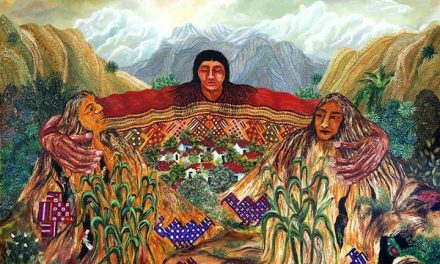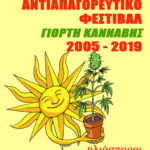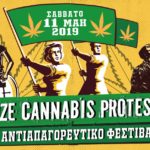Για άλλους μοιάζει με όνειρο και για άλλους με εφιάλτη. Οι αμερικανικές τράπεζες που δάνειζαν τους πάντες παγκοσμίως, από κυβερνήσεις μέχρι βιομήχανους και από «ευυπόληπτους» επιχειρηματίες μέχρι ανθρώπους χωρίς τα «απαραίτητα εχέγγυα» αρχίζουν και καταρρέουν σύμφωνα με τη θεωρία του ντόμινο. Αιτία σύμφωνα με όλους τους αναλυτές η αμέριστη απληστία τους στη χορήγηση κερδοσκοπικών δανείων με υψηλό ρίσκο. Οι χρεοκοπίες διαδέχονται η μία την άλλη. Ιδιωτικές τράπεζες κρατικοποιούνται για να σωθούν. Τα χρηματιστήρια καταρρέουν. Και ένα fanzine κυκλοφορεί για πρώτη φορά στους δρόμους της Βαρκελώνης ισχυριζόμενο ότι αυτό θα είναι και το τελευταίο του τεύχος.
Βέβαια την άνοιξη του 2006 όλα αυτά έμοιαζαν με σενάριο επιστημονικής φαντασίας. Την άνοιξη του 2006 λοιπόν ένας ακτιβιστής της αντιπαγκοσμιοποίησης με το ψευδώνυμο Ενρίκ Ντούραν βάζει σε εφαρμογή το σχέδιό του. Ξεκινάει να δανείζεται ανελλιπώς από όποια τράπεζα στη Βαρκελώνη δεχθεί να του δώσει λεφτά δίχως να βάλει κάτι σε υποθήκη ή να εγγυηθεί κάποιος τρίτος για αυτόν. Τελικά καταφέρνει να πείσει 39 (!) τράπεζες από τις οποίες αποσπά συνολικά 68 δάνεια συνολικού ύψους 492.000 ευρώ. Παίρνει ό,τι μπορεί από όποια μπορεί. Από άλλες αποσπά καταναλωτικά ή προσωπικά δάνεια για αγορά αυτοκινήτου ή επισκευή σπιτιού και από άλλες δάνεια για μια εταιρία παραγωγής μαϊμού που συστήνει ειδικά γι’ αυτό το σκοπό. Την Τετάρτη 17 Σεπτεμβρίου ένα εικοσασέλιδο περιοδικό ονόματι «Crisi»διανέμεται όχι μόνο στη Βαρκελώνη αλλά σχεδόν σε ολόκληρη την Καταλονία σε 200.000 (!) αντίτυπα.
Το editorialτου υπογράφει ο Ενρίκ Ντούραν. «Έκλεψα 492.000 ευρώ από αυτούς που μας κλέβουν πιο πολύ απ’ όλους για να καταδικάσω τις πρακτικές τους και να δημιουργήσω εναλλακτικά κοινωνικά μοντέλα». «Ήταν μια πράξη πολιτικής ανυπακοής ενάντια στο τραπεζικό σύστημα ανταποκρινόμενη στο ύψος των περιστάσεων των οποίων ζούμε. Με αυτά τα χρήματα που δεν πρόκειται να τους επιστρέψω ποτέ και που ξεπερνάνε το μισό εκατομμύριο ευρώ μαζί με τους τόκους, στήθηκε η έκδοση που κρατάτε στα χέρια σας. Τα υπόλοιπα μοιράστηκαν σε πρωτοβουλίες και ομάδες που χτίζουν εναλλακτικές αυτονομίας και αυτό-οργάνωσης πιστεύοντας σε ένα διαφορετικό κόσμο από εκείνον της κερδοσκοπίας και της εκμετάλλευσης τον οποίο οι τράπεζες αναπαράγουν».
Για όσους αμφιβάλλουν για το ότι ο Ντούραν είναι δυνατόν να συγκέντρωσε ένα τόσο μεγάλο ποσό από τις τράπεζες, αναφέρει αναλυτικά τις μεθόδους τις οποίες χρησιμοποίησε. «Με έναν εκτυπωτή, ένα φωτοτυπικό μηχάνημα, ψαλίδι και κόλλα μπορεί κανείς να κάνει θαύματα» γράφει ο ίδιος, ο οποίος εφηύρε ένα επάγγελμα και έφτιαξε ένα πλαστό αποδεικτικό μισθοδοσίας για να πείσει τις τράπεζες να τον δανείσουν.
Το περιοδικό «Crisi» το οποίο μπορείτε να κατεβάσετε στην ιστοσελίδα http://www.17-s.info μεταφρασμένο και στα αγγλικά, περιέχει μια σειρά από άρθρα πάνω στο χρηματοπιστωτικό σύστημα, την κερδοσκοπία στα τρόφιμα και στην ενέργεια καθώς και την καταστροφή του περιβάλλοντος. Επίσης περιέχει συμβουλές στους πολέμιους της παγκοσμιοποίησης για το πώς μπορούν να αντιδράσουν με συντονισμένες κινήσεις. Η πιο απλή συμβουλή του Ντούραν; «Σταματήστε να παίρνετε δάνεια. Και αποσύρετε αμέσως όλες τις καταθέσεις σας από τις τράπεζες. Μη γίνεστε συνένοχοι στο έγκλημα». Ο Ντούραν γράφει ότι έχει ήδη εγκαταλείψει την Ισπανία αφού οι πράξεις του –αν και μέσα στη σαστιμάρα ακόμα καμία τράπεζα δεν έχει κινηθεί νομικά εναντίον του- επισείουν ποινή φυλάκισης μέχρι και έξι χρόνια.
Όταν διάβαζα αυτές τις γραμμές στο site της έγκυρης El Mundo δεν πίστευα στα μάτια μου. Έμοιαζε περισσότερο με πρωταπριλιάτικη φάρσα. Έπρεπε πάση θυσία να το διασταυρώσω. Πήρα τηλέφωνο στη Βαρκελώνη τον φίλο μου τον Max Wright από τους Ojos de Brujo.
«Hola tio, άκουσες εκείνη την απίθανη ιστορία για τον τύπο που τα βούτηξε από τις τράπεζες για να εκδώσει το περιοδικό του;»
«Ναι, φίλε. Για την ακρίβεια το έχω σπίτι. Μου το δώσανε χθες όπως καθόμουν σε ένα μπαρ!»
Του Βαγγέλη Δαβιτίδη
Ακολουθούν αποσπάσματα του περιοδικού στα αγγλικά
Building another society here and now
As we have seen in the previous pages, things can’t go on in the same way. The crisis which has already appeared in the light of day is not a passing phenomenon, but rather such a profound change that is very unlikely to be resolved by the very system that produced it: capitalism.
Having suffered its consequences, it’s easy to say what we don’t want. However, to continue advancing and to overcome the obstacles which are placed before us, we have to know in what direction we are going.
More and more people are aware of that, and help plant the seeds of another possible world, just as the existing world makes itself more and more impossible.
In order not to depend on capitalism, the alternative society is being built on the basis of autonomy, cutting off links with corporations and state institutions, and reinforcing links with the local neighbourhood, so as to rebuild relations in the community.
This new society is also built on the basis of self management, that is to say, dividing the power of decision making and the work among all the people involved, avoiding hierarchies and giving mutual support.
And how is this new society being conceived here and now? As the poet Antonio Machado said: “Caminante no hay camino, se hace camino al andar” (“Walker, there is no path, we make the path by walking.”)
Theory is being made from practice, and this practice depends on everybody.
If you want to control your own life yourself, you can start by incorporating ways of living it as you’d like to live. If you want to feel supported, you can find other people with whom you share this way of living. If you want to strengthen and develop the collective, you can take on commitments, and give them the importance they deserve and the time they need. If things don’t turn out as you expected, you can learn the lessons and continue experimenting. When you wish to share experiences and/or look for connections with other groups, you can meet up with those you have nearest to you and with those who are working on related issues. When all these collectives of people can sustain ourselves from the work we do for each other, we will be making a reality of the alternative society.
So, build another society here and now: that is a vision of political action which tries to go beyond protesting, not limiting ourselves to asking the politicians to bring change; removing their words from the centre of attention of our political action and replacing them with our own abilities, and with them promote a direct and effective social transformation, a transformation within our reach which can serve as a model to learn and show in practice the type of world that we want to build.
This form of transformation is being organised from below, on the basis of concrete experiences which resolve, directly and independently of government and private/market channels, the basic necessities of each person and of the community, in fundamental issues like housing, food, education, work, health and leisure, among others.
We will now go more deeply into some of the projects which are already functioning.
http://www.17-s.info/building-another-society-here-and-now
Collective alternatives become a reality
The occupation of the first squats at the beginning of the 1990s to create self managed social centres planted a seed which, within a few years, had created a new political culture, one which dissents from the institutional system and generates life experiences which represent alternatives to the dominant model.
There are self managed social centres with diverse names and ways of functioning. The most historical ones include the libertarian “ateneus”, which recuperate anarchist traditions from before the civil war of 1936-39. There are also the “Casals populars” (“houses of the people”), which have an increasing presence the towns and villages, and contribute to the emerging independentist movement which shares the values of self management discussed here. And of course there are many autonomous social spaces with no ideological label other than that of creating theory on the basis of a practice which they never cease to push forward. Some of these centres are squatted, others are rented, ceded by individuals, or have been wrestled from the administration through a neighbourhood struggle, but all share the values being talked about here. There are more than a hundred of them around Catalonia.
Social centres usually become known as alternatives for non consumerist leisure, through a busy program of activities in the evenings and at weekends. But they are a lot more than that: they are a basic space for socialisation where we can learn to relate to each other in different ways. They are spaces in which to learn without hierarchies, and they are the best context for many of the experiences discussed below to germinate.
Another key example of autonomous practices on the path towards a new society are ecological consumers’ cooperatives. These are groups of families which organise themselves together, by means of assemblies, to buy from local ecological producers, thus avoiding intermediaries. In this way, they give a strong boost to agroecology, they promote alternative economic relations based on solidarity, and help to rebuild social relations in the local community. While there were already a few of these at the end of the 1990s, they have multiplied spectacularly over the last 5 or 6 years. In Catalonia, from where we have information, there are now around 80 of these coops. Some of them receive a basket directly of whatever the farmer has, while others make an order for what they want. In some of them, active participation as a volunteer is a condition of membership; others allow more passive participation and professionalise some of the process. All of them together make up a growing agroecological movement.
Work is one of the basic aspects of living in a different way. Given that work is one of the activities which occupies most time during our life, it is essential to be able to stop working for a businessperson who forms part of the growth economy. There are experiences of work cooperatives which have functioned for many years, in sectors as diverse as printing, lawyers’ practices, insurance, engineering, graphic design, renewable energy, translation, IT, etc. Some of these function in a participative way through assemblies while they try to maintain a socially and environmentally coherent productive activity. There are some who initiate a small productive project individually or in a small group. For example, there are more and more people who escape from the capitalist circuit to offer their services as craftspeople — producing vegetables, fruit, bread, beer, soft drinks, chickens, cheese, honey, pasta, wine, soap, toys or magazines, among others — thus extending the scope of short supply chains, and putting in place an economic network which is an alternative to the dominant system.
Even in the area of finance, which we have criticised so much in other pages, there are alternatives. There is the experience of Coop 57, which provides alternative financing for cooperatives and social entities, while offering individuals a politically coherent saving option. This coop, together with other bodies, is developing the Fiare Project, a citizens’ credit cooperative which would operate as a real alternative to banks, while we survive under the current system.
A strategic aspect of building another economy is to substitute exchanges in the dominant currency, in our case the Euro, with alternative options managed by civil society. Within the Catalan ambit, some exchange networks have consolidated themselves, facilitating direct interchange between individuals who wish to cover some need without going through the market. These networks tend to use Internet as a means of communication. Within these networks, products such as books, clothes, food, IT products, or even services such as babysitting or domestic repairs, are exchanged. These activities are supplemented by interchange markets, physical spaces where, for a morning or all day, people regularly exchange a wide range of products or agree to provide services. Given that alternative production is still at an early stage, the most typical thing in these spaces is to exchange second hand products, such as books, clothes or small electrical appliances. They thus represent a community alternative to consumerism, at the same time as helping to develop new social relations.
And while we are transforming the economy, what could be better than buying and selling for free? Over recent years, new projects have appeared in which anybody can bring what they don’t need and take away what they need, without payment. This is surely they best way of demarketising our needs, and of learning to give and receive without commercial relationships getting in the way.
What we most often find in these spaces are, firstly, clothes, and then books and music, though there is a tendency to diversify. The main impediment for this type of project is usually getting space without monetary cost, so they are most typically found in occupied spaces.

In some self managed social centres and other premises, there are small bookshops with critical and dissident publications, as well as distributors of music, T-shirts and other materials related to the counterculture which emerges out of the social movements. Posters, leaflets and pamphlets can also be found there for different mobilisations and for groups that are publicising their activities, as well as people who can inform you about these.
Another central idea of this other society that we are putting in place is that of freely sharing knowledge and culture. Thus we can find a good handful of social libraries where you can access texts on social struggles and criticism, and learn more about the various alternatives and ideas. Recently, they have come together in a network of social libraries which can be found on Internet.
Some projects involved in the idea of sharing knowledge have existed for years: Knowledge Exchange Networks. In these spaces, people offer workshops and courses about what they know, and are taught about what interests them, always without payment. Any type of knowledge may be offered or learnt: intellectual, technical, artistic or handiwork, depending on the abilities and interests of the participants. These are also important spaces for the creation of community and social relations.
Social centres and alternative movements often organise workshops and courses of different types, especially training aimed at helping us to apply self management to our daily life. Agroecology, alternative energies, self building, electricity, free programming, gender relations, facilitating meetings and many other types of knowledge reinforce the autonomous capability of the increasing numbers of people who opt for other ways of living.
In sharing knowledge, a key idea is to “allow copying”. More and more intellectual, scientific and artistic creations are questioning the concepts of authors’ royalties and patents and creating alternatives to these. There are Creative commons licences, which can be applied to literary, audiovisual, musical and scientific productions, promoting the possibility of copying and sharing without paying the authors. In this way, culture and knowledge spread among people without being privatised and without private interests prevailing over the common good.
The idea of “allowing copying” was born out of free programming, an already consolidated movement which has shown how networks based on social cooperation can be as or more effective than the big transnational corporations. From free programming came hacklabs, authentic autonomous laboratories of free information, which tend to be found in social centres. Also emerging from this culture are autonomous servers — which let us self manage our e-mail, web pages and our own IT security, without going through a commercial company — and free wireless networks — of which guifi.net is a reference point in the Catalan ambit — which go far beyond just sharing an Internet connection.
And if we are going to share, what could be more important than the basis for being able to feed ourselves, that is, the seeds which allow farmers to grow food? Given that industrial agriculture and especially genetically modified food are putting local varieties in grave danger, the task of conserving seeds, and providing them to local farmers who want to plant them again, is fundamental. Luckily, this is one of the tasks that the agroecological movement is carrying out, and across the country there are more and more seed banks which conserve biodiversity and protect life now and in the future.

Cultivating vegetables can also be a social and communal activity, not just a job. That is shown by the many community vegetable patches which have been established around Catalonia over the last few years. Luckily, there have always been plots for personal consumption, but it is especially interesting to learn to share and to recover community participation by cultivating a vegetable patch together. A good example of this are the community vegetable patches at Can Masdeu, the occupied country house in Collserola, on the outskirts of Barcelona.
By the way, plants don’t only produce food for people, but also many other resources for everyday life, such as curative products for our health. These are what are known as medicinal plants and the truth is that capitalism also makes our lives difficult in the field of health. One example is Stevia, a natural sweetener which has been shown to cure diabetes, but whose sale for health purposes is prohibited in the Spanish state. Could it be that the drug companies have no interest in a treatment that cures diabetes completely? Even so, Stevia is spreading among the social movements, after all, if we’re going to practise civil disobedience, what better than cultivating healthy plants?
And speaking of health, let’s move on to talk about alternatives for receiving newcomers to the world, since here we can also find options outside the realm of the hospitals and the drug companies. Groups which help women to give birth naturally, which promote breastfeeding and baby care groups, form part of a series of alternatives for newborn children which help to improve their wellbeing, during birth and in their first few months of life, with consequences for all their lives.
And advancing in time, the area of infant education mustn’t be left out while creating alternatives for a new society. Whether people develop as free beings, with values and initiative, or are passive and submit to the existing system, depends on education. Many mothers and fathers know that, so following some earlier initiatives, educational alternatives have multiplied over recent years. Sometimes they are fathers and mothers who educate their offspring at home, sometimes groups of families who educate their children together — increasingly with educators who, jointly with the families, guide the children in their learning, without subjecting them to excessively determined models — and there are some examples that can really be called free schools. There are projects for up to 12-year-olds, and it is intended to go further. This is what is known as free education, and within the Catalan ambit, the Free Education Network (Xarxa d’Educació Lliure, XELL) facilitates the creation of initiatives of this type, and links up those involved in them.
When looking for somewhere to live, and rather than waiting in vain for the administration to give us the right to housing, we guarantee it for ourselves. The squatting of empty housing is already a very frequent alternative in our country, though it is impossible to know how extended this option is, because many squats don’t publicise themselves. Sometimes squatting allows people to live for many years without having to face up to one of the largest items of expenditure imposed on us by the system, but squatting tends to be accompanied by the anxiety of not knowing how long it will last. Another option, which is more incipient but has a future, are usage rights housing cooperatives. In this format, which is much cheaper than mortgages and individual rental, ownership stays with the cooperative and participants cannot resell their rights at a different price than what they cost them, thus preventing speculation. It is an option which is widespread in other countries, and just beginning here thanks to the Sostre Cívic (Civil Roof) association.
These housing options are usually accompanied by alternative forms of communal living, which overcome the individualism of modern flats, creating spaces for communal use around the building, such as shared IT spaces, laundry, library or living room.
Such housing alternatives are ideal locations to self manage the production of energy, with experiences such as using thermal solar power to heat water and putting photovoltaic solar panels on the roof. Something else which is necessary in urban areas, and where experiences are already beginning, is in using roofs for gardening plots. In rural houses, there are starting to be experiences of creating small biogas generators to warm the building using organic residues.
And speaking of living together, there are even alternatives in one of the most untouchable areas of official culture. There are more and more people who are considering, and beginning to put into practice, alternatives to the nuclear family, which has been simply the western model for the last 50 years and has been useful to consumerism, given that it has helped to break wider social connections. Faced with that, and sharing ideas of the struggle against patriarchy and the sexual liberation movements, new models of relations are emerging, based on the freedom to love more than one person, with communication and transparency. Before it was called free love, now it is also known as polylove.
In the personal realm we also learn to relate with each other as equal and diverse persons, without discrimination by race, class, gender or sexual identity.
All the information which is deliberately ignored, all the mobilisations which we mentioned before, and all these alternatives which we are now presenting, have something in common, which is that they want to make themselves known and reach more people. Here we touch on a fundamental alternative for making other viewpoints known: the alternative media. They can be local, thematic, generalist… There are many in print and masses in Internet. There are a number of free radio stations, and very few TV channels. More typical is the production of interesting documentaries and news reports, which can often be found on Internet or through alternative distributors. Alternative media are projects which imply ongoing commitment and usually require a lot of dedication and effort, as well as needing economic resources to get beyond a minority audience. In the section of links you can find the web pages of many of these projects.
There are other collective alternatives and it is impossible to cover everything, but we hope that you have got an overall idea. In fact, we have shown you a good range of alternatives which are in operation and which affect many aspects of life. Now, what ideas are helping the people involved in these diverse initiatives to come together to build another society? How is the network being created? Of that, we will speak in the pages that follow.
http://www.17-s.info/collective-alternatives-become-reality
Networking social movements, building counter-power
To understand how social movements organise themselves here, it’s necessary to take into account the fact that, unlike other countries such as Italy or France, in the Catalan territories there aren’t large, strong organisations with a significant capacity for mobilisation, rather that the movement is structured in small groups. Even in the case of organizations that could be considered “large” (national coordinating networks, alternative trade unions, federations of associations, etc), we find that their members in different zones have a very high degree of autonomy, since they often follow centralised directives only to a very limited degree. This dynamic, while it may make it more difficult to organise massive demonstrations — these are more common in Italy, for example — is capable of organising surprising actions, such as the Social Consultation for the Abolition of the Foreign Debt in 2000, when a million people voted against the debt in an unofficial and prohibited referendum; the social response on13 March 2004 after the Madrid bombings; or the Popular Legal Initiative over recent months for a Catalonia free of genetically modified foods.
These successful experiences show us that, here, great events happen not when big organisations decide they should but when a generalised feeling of motivation and empowerment grows from below. The triggers of these processes are small “hubs” (individuals and collectives), not very representative in numerical terms, but very connected between each other.
Faced with different issues and calls for action, local groups react by reproducing and amplifying the signal, thus spreading and broadening the “spiral” of contact. This doesn’t follow from organisational discipline, but rather from each group’s own judgment, freedom and autonomy.
So if a few words can characterise these new social movements, they are decentralisation and autonomy, as methods of acting which allow both the freedom of action of each individual and collective element — so that they can carry out their own activity — and the capacity to generate collective, plural and useful alternatives for social transformation, in a coordinated manner.
Another of the values of these new social movements is “horizontality”, that is to say the absence of hierarchies, given that is has been demonstrated historically that leaderships, when they accumulate power, end up taking advantage of it to perpetuate themselves and to benefit their own private interests, instead of the collective good.
With horizontality and autonomy, it is possible for decision making spaces to be multiple and for consensus to be the norm when facilitating meetings and activities. This mechanism means that the movement can’t easily be destroyed. Since there are no absolute and formal leaders, these social movements aren’t easy to stop, because there isn’t a president or representative to corrupt or arrest. They try to empower every one of the individuals and collectives within the movement, so that no single one is indispensible. The mass media often try to convert spokespeople into leaders, and social movements avoid this with strategies like the rotation of spokespeople.
However, it is very important to avoid decentralisation and horizontality being accompanied by atomisation or dispersal.
We understand that diversity is part of our strength; we reject the single message, and we want to make it known that we have many different messages that respect and enrich each other. But for this very necessary coordinating capacity to exist, we have to promote spaces for the different participants to meet and get to know each other, and share the resources that each group has or knows of.
Exactly these were among the conclusions and proposals of the “Social movements’ meeting: put degrowth into action and build counter-power” in which 350 people came together last July.
Out of the Social movements’ meeting came the project of creating a bank of resources of all types: material for sharing; houses that are empty or have free space; land to cultivate; knowledge for day to day self management; proposals for degrowth; among others.
Building these elements of social cooperation allows us to optimise efforts and energies, connecting spaces and extending the network more and more, so that it becomes stronger and more dynamic.
Now, all these characteristics and wills are not enough to really build an alternative society, beyond the projects of small collectives that we explain in previous pages. In order to carry forward new ways of living, a lot of dedication is needed and material resources are required. In the capitalist system, dedication and resources are bought with money; and of course, money is something that those of us who are against this system tend to have little of, which means that this becomes a problem limiting the consolidation of alternatives. For that reason, historically there have been expropriations of banks and also there are those who try new action strategies such as that described in the centre pages. Apart from that, it’s necessary to go further and create a system of access to necessities which can be in itself part of the alternative society, and not just an instrumental means for achieving it.
After many workshops and diverse proposals, at the Social movements’ meeting in July it was agreed to go ahead with the Public Autonomous Space, a project to construct an economic alternative which could help consolidate the diverse projects for transformation.
This Public Autonomous Space would consist of a network of people and resources in which the basic necessities of the persons participating would be guaranteed, to enable them to stop working in the capitalist economy and dedicate themselves to projects of the alternative society.
Proposals such as these are a contribution towards people organised in social movements becoming a real counter-power to the powers that be, so that we can oppose the plans of those on high, at the same time as putting into practice an embryo of what could be a new form of organisation of society.
Evidently that doesn’t go down well with those in power, so they respond with strategies which, despite being quite varied, are already well known. The first of them is integration, usually applied to the more moderate collectives or those that are economically dependent. The strategy is to finance them and allow them in to participate in some way in the actions of the Government, in exchange for them abandoning their potential for transformation.
When this doesn’t work, there are many others. One of them is the repression which also comes from the state. This may hold back specific mobilisations and projects, at the same time as trying to frighten or dishearten us. One variant are the more and more frequent fines with which they try to put us out of action economically. Another is the criminalisation to which we are subjected by some of the mass media. This is aimed at making society reject both the social movements and everything we do, as well as at breaking our bridges with other social sectors. When none of these work, they simply censor us.
But none of these strategies will stop the social movements. Now, in the context of the structural crisis of the capitalist system, it is the moment, more than ever, to make an effort and to keep struggling for the freedom of peoples and individuals, to continue building a new society, to practice a better way of living.
While we go along this road, it is important to remember that no parliamentary party can represent the proposals of social movements who are calling for another way of doing politics.
On the contrary, we call on citizens to organise with their neighbours in neighbourhood assemblies, to establish assemblies at the universities and at work.
We invite everyone to participate directly in the transformation of society, starting from their own immediate living environment and to connect, in debates and actions, the concrete immediate problems with the structural causes which produce them, and the alternatives in the here and now.
To sum up, we call on everybody to participate in politics, directly and without go betweens. Because living in another way is in our hands, of each and every one of us.
http://www.17-s.info/networking-social-movements-building-counter-power
Let’s make the hidden government visible, let’s build a different society
“None are so hopelessly enslaved as those who falsely believe they are free.” Goethe
Economical oligarquies which we can never really see finance both left wing and right wing governments while, at the same time, they all meet in secret societies to discuss about the new global order in a friendly way. Is it a contradiction? No, it is not; it is a carefully planned strategy.
Allowing us to vote every 4 years in a pretty much two-party system is just the easiest way to make us think that we are living in a democracy. And this sort of directed democracy, which is the result of thorough plans orchestrated after the Second World War, has proven to be the simplest and costless means to keep the population subjugated while the power of a few families becomes imperial.
Throughout the years, the obscure financial system has become more and more omnipotent, taking the concept of exponential growth to the limit. Real economy has transformed into an appendix of finances, rapidly playing its role of turning credit into debts and consumption. In the meantime, the people is being stolen twice: capital gain for businesses and capital gain for priviledged bankers are obtained by the creation of money.
Within this context, times of crisis had never posed any problem until now, given that these are times when bigger fish eat medium and small fish.
However, this perfect system has an unbeatable enemy on the horizon: the planet’s limits. Growth cannot be ongoing in a planet with limited resources. Now, at the dawn of the 21st century, we are getting close to these limits. Black gold has been the first to send an alert call; other fossil fuels, minerals for industries, agriculture fertilizers, farming land, global warming and an extreme long list of elements are to follow its path.
While all those who hold the invisible power keep discussing kindly what will the new global order to come after this profound crisis be like; while they debate on whether war, starvation or illnesses are a better or worse strategy according to their criteria and interests, the people hold the responsibility to make the most of this opportunity and take action before it is too late. Power does not exist as such without obedience and fear. Everyday we hear more unruly voices and there is more of us organizing for action. Readers, men and women, be aware that you can either be enslaved or be free.
This published work, dated 17th September 2008, aims at grasping the attention of all those who are ready to listen, to let them know that all the social movements are on the go to oppose to the dictatorship of the economy, planned behind our backs, and to build a new society, here and now.
http://www.17-s.info/let-s-make-hidden-government-visible-let-s-build-different-society










